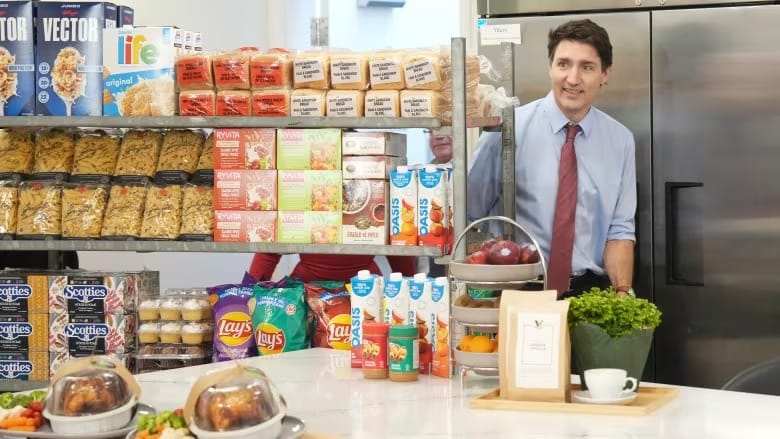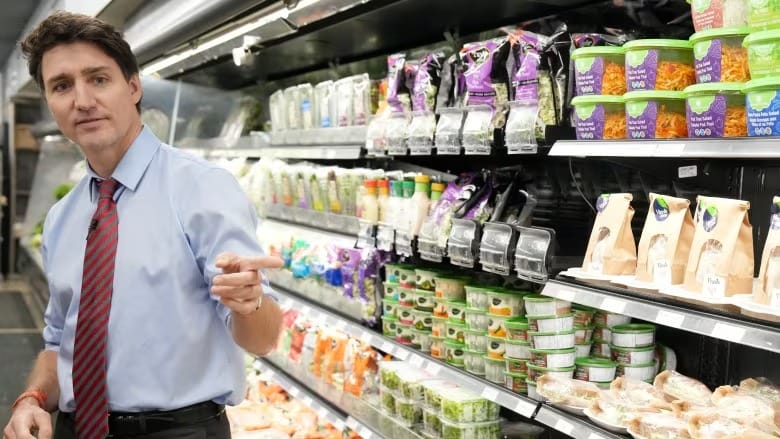U.S. ambassador to Canada says democracy will 'easily' survive outcome of Tuesday election
David Cohen reminds Canadians to be patient as results come in nationwide

In anticipation of a pivotal election on Tuesday, the U.S. ambassador to Canada stated that "democracy is easily going to survive" the results of the race and urged Canadians to exercise patience as election results from the United States begin to emerge.
David Cohen expressed in an interview on CBC's Rosemary Barton Live that U.S. democracy "has survived and thrived in the face of many challenges to that democracy," referencing both world wars and the U.S. Civil War as examples.
"I firmly believe that regardless of the outcome of the election, the United States is going to remain the most durable democracy in the world," Cohen told host Rosemary Barton.
"Democracy is something that's important. It's valuable. It's something I treasure as an American. ... I think democracy is easily going to survive the outcome of this election."
Some state officials anticipate clearer results by the end of Wednesday as they continue processing mail-in ballots.
There are also concerns regarding whether Republican presidential candidate Donald Trump will accept the election results.
At a campaign event in Arizona on Thursday, Trump repeated unfounded claims of election fraud and asserted he was "way ahead" in the race against Democratic challenger Kamala Harris.
In another segment on Rosemary Barton Live, International Trade Minister Mary Ng was asked how Canada would react if Trump refuses to accept the election results.
Ng responded, saying, "the American democratic system will need to do its work."
"What I want to say to the Canadian people is that Canada stands ready to work with whoever the American people choose to work in the White House," Ng remarked.
According to a senior government source, Canadian officials have reached out to both the Harris and Trump campaigns to arrange a congratulatory phone call with the election winner.
The stakes for Canada
One of the primary concerns for Canadian officials is how the election will impact Canada's trade relationship with the United States.
Trump has advocated for a minimum tariff of 10 percent on all imports entering the U.S. Sources have informed CBC News that Trump's allies have provided no guarantees for a reprieve for Canada.
It remains uncertain whether a Harris administration would seek to renegotiate the Canada-U.S.-Mexico Agreement (CUSMA), which is due for review and renewal in 2026. Harris opposed the trade agreement when she was a senator, stating it did not adequately protect workers.
Ng stated that the agreement is a "good deal that received bipartisan support across the American Congress," emphasizing that it is "healthy as trading partners to take a look at what is working and how we can make it even better."
When asked about preparations for potential tariffs if Trump wins, Ng noted that American businesses and labor groups have conveyed to Canadian officials that "they don't like tariffs."
"So I think that any incoming president cares deeply about their businesses, their jobs in America and its impact," Ng added.
Cohen remarked that it is challenging to predict how the election will influence Canada's trade relationship with the United States since voters will also be electing U.S. senators, members of the House of Representatives, and state officials, all of whom play a role in the American political landscape.
He also mentioned that business and labor organizations, along with public think tanks, "will be working very hard to defend the vitality and the vibrancy of that trade relationship."
"All those people are going to remain in place post-election as they were before the election, and I think that lends a certain stability to the overall trade relationship."





